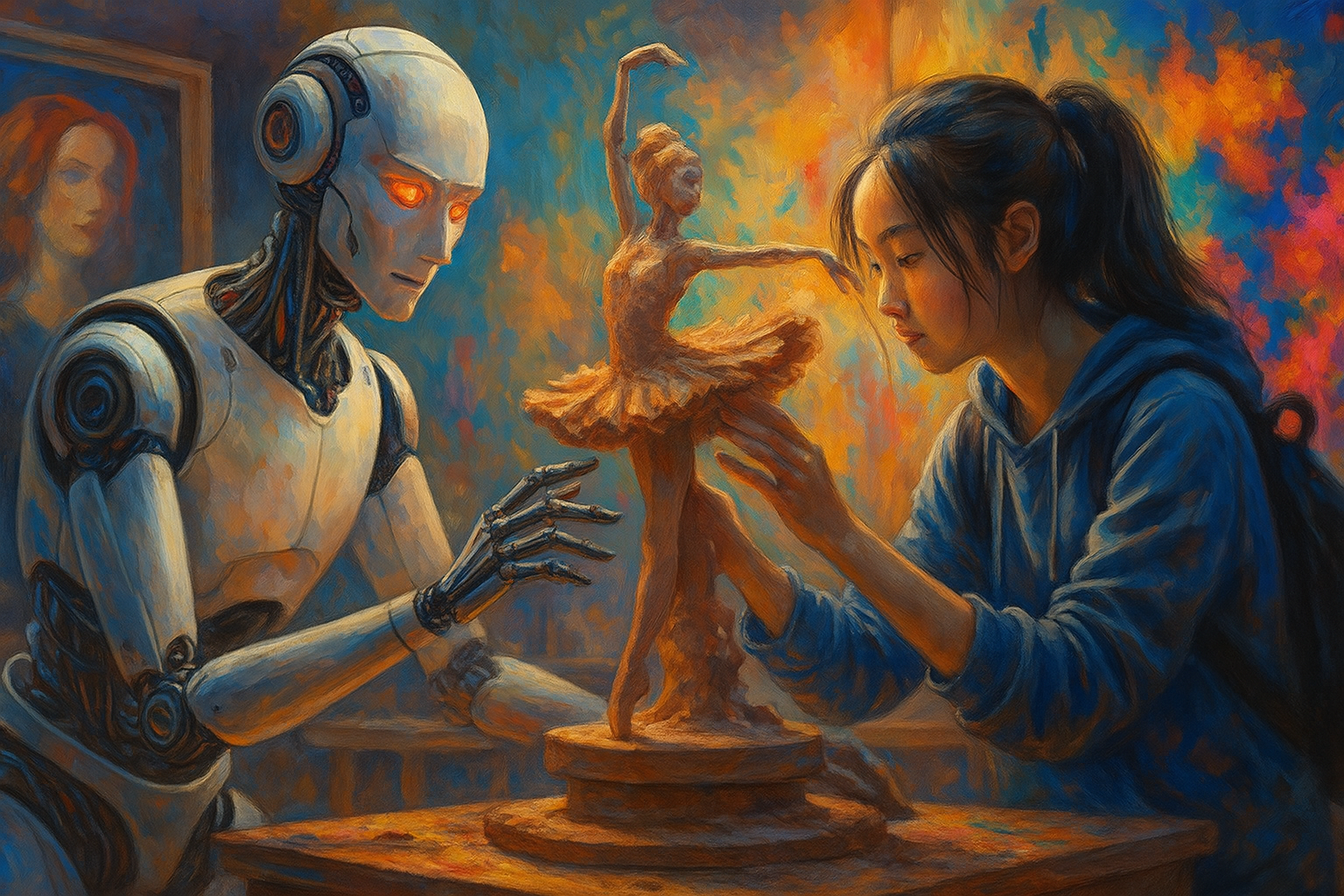In an era where machines can write essays, generate digital art, and even mimic musical composition, the question arises: Is artificial intelligence replacing human creativity, or simply transforming it?
From advertising to film to publishing, AI is rapidly becoming a creative assistant. While this opens up new possibilities, it also raises concerns, especially around originality, authorship, and who benefits in this new system.
Creative Expansion or Creative Displacement?
AI has undeniably widened access to creative tools. Image generators like Midjourney and writing assistants such as ChatGPT allow anyone to create with little to no formal training. According to a 2024 survey of professionals, nearly 70% supported AI integration into their creative workflows, citing improved productivity and faster ideation.
However, this growing convenience comes with trade-offs. As reported by The Hindu (2023), many creatives are worried not because AI is better than they are, but because it’s cheaper. For commercial clients, the ability to generate content instantly without hiring designers or copywriters can be an irresistible cost-saving measure. It’s that AI is outcompeting human creativity on quality and on affordability.
Creative Opportunity is Not Infinite
Creativity itself isn’t a limited resource. One person creating doesn’t prevent another from doing so. But creative jobs are not unlimited. As AI becomes more capable, many roles traditionally held by human artists and writers are being re-evaluated. A 2023 report from BT Group estimated that up to 10,000 jobs could be automated using AI tools, signalling a larger industry shift.
The concern is not that creativity is dying but that the space for human-led creative work is shrinking. As Wade (2024) argues, AI tools aren’t threatening creativity in theory, but they reduce the economic value of what humans create, especially in high-output, low-margin sectors like advertising or basic content creation.
Is AI Actually Creative?
To answer this, it helps to ask what creativity is. Scholars like Berys Gaut and Michael Kronfeldner define creativity as the ability to produce something that is both original and fitting to a context. Importantly, it’s not only about novelty but also about intention and appropriateness.
AI can simulate originality by remixing what it has learned, but it lacks the emotional perspective that humans bring to the table. As the BBC article (2023) highlights, most AI-generated work still needs human curation to be meaningful. It’s not only about hitting “generate” but also about knowing which outputs matter.
That said, many creatives now use AI as a collaborator. For example, a designer might prompt an AI to sketch the basic structure of a poster, then refine it manually. In this sense, the AI becomes a brainstorming partner rather than a full-fledged creator.
The Role of Human Judgment
A useful way to think about AI is as a tool for amplification. It helps extend the reach of human ideas. But it doesn’t replace human taste, vision, or storytelling. The Studio Ghibli comparison (BBC, 2023) is useful here: hand-drawn animation filled with imperfections and emotion stands in contrast to the polished but emotionally hollow output of AI.
Even though Hayao Miyazaki called AI-generated art “an insult to life itself,” many studios are experimenting with AI, not to replace artists, but to reduce tedious work. For instance, automating in-between frames or concept sketching frees up animators to focus on narrative and emotion.
Current Challenges and Resolutions
| Challenge | Response |
|---|---|
| Reduced demand for entry-level creative jobs | Encourage creative education that integrates AI literacy and focuses on human-centric skills like storytelling and emotional design. |
| Over-reliance on algorithmically generated content | Establish ethical guidelines in media and publishing that prioritise human authorship and transparency in AI use. |
| Homogenisation of creative outputs | Embrace AI as a draft tool but maintain human direction to ensure uniqueness and cultural depth. |
Creativity is Evolving, Not Ending
AI is reshaping, not replacing, creativity. The future will be a hybrid of human originality and machine efficiency. Those who adapt and use AI thoughtfully will define the next wave of creative innovation. How AI impacts artistry depends on its use and who steers it.
FAQs
Q1: Is AI replacing human creativity?
No, AI is not replacing creativity
Q2: Can AI truly be considered creative?
AI can mimic creativity through patterns and data, but it lacks human intent, emotion, and context.
Q3: How can creatives adapt to AI tools?
By using AI for support tasks like drafting or ideation, creatives can enhance output without losing originality.
